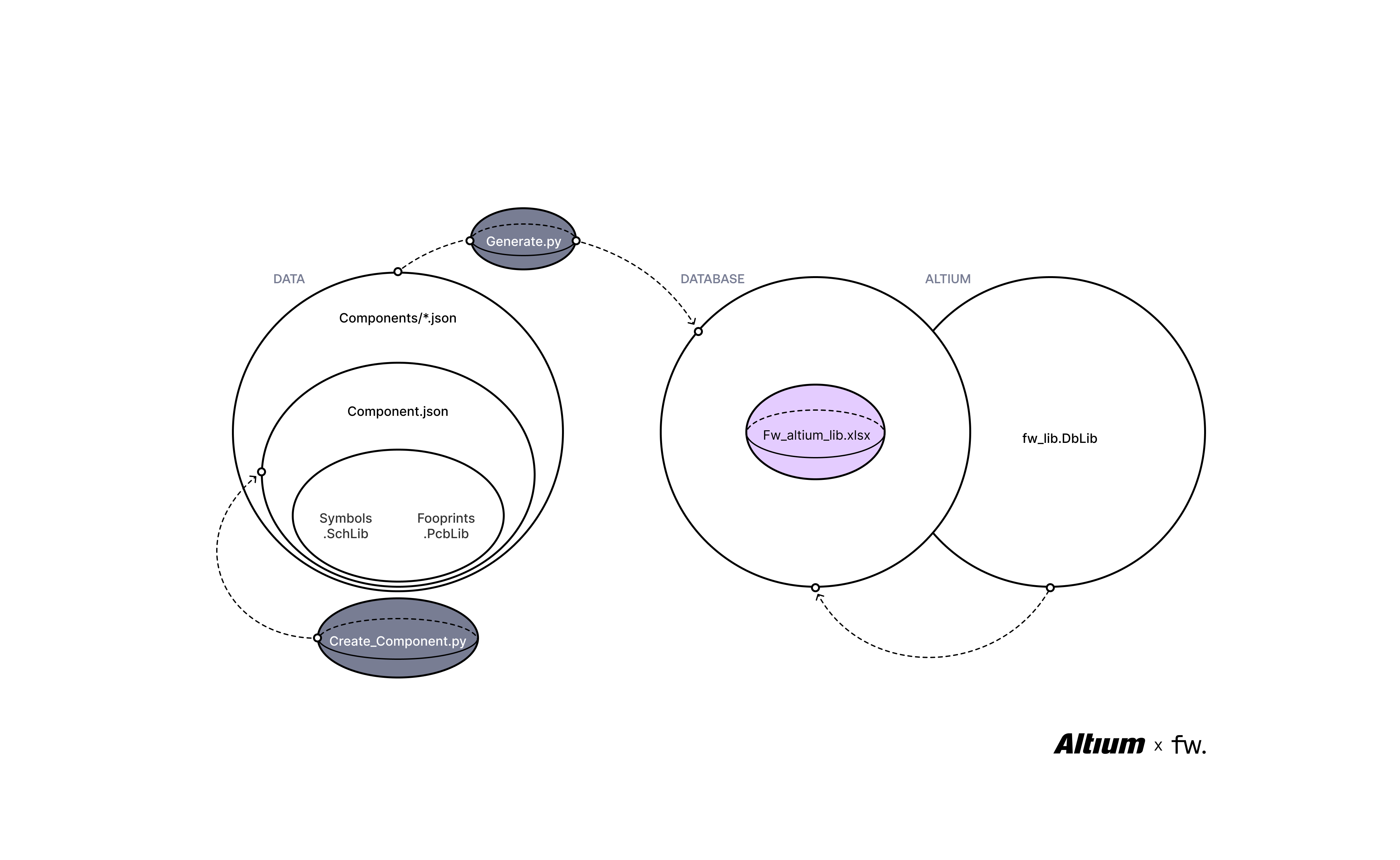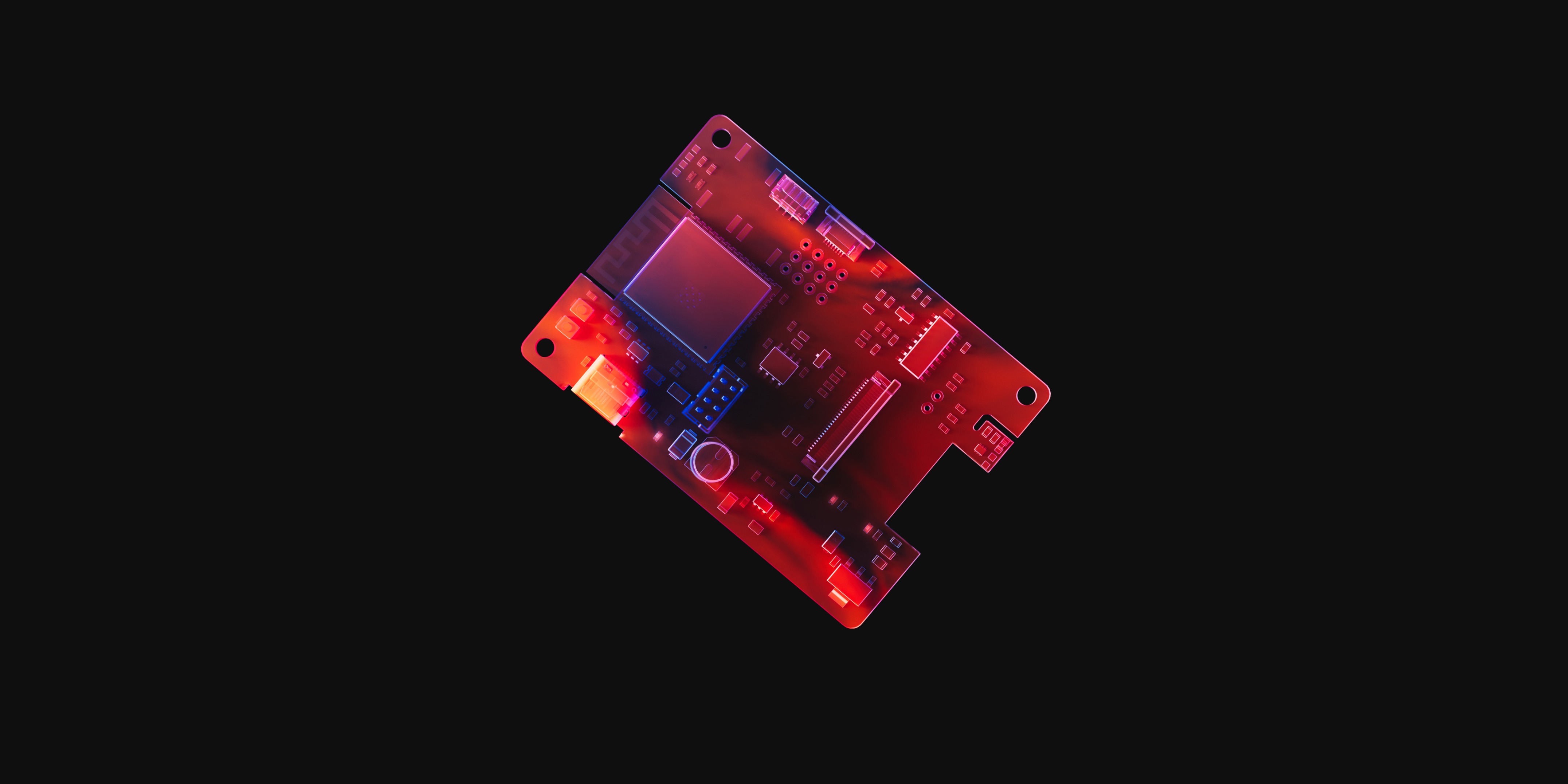Building Open, Structured, and Scalable: Futurewave’s Altium Library Is Now Open Source
A proven, production-ready foundation for open and efficient hardware design.
Executive Summary
Futurewave is open-sourcing its internal Altium component library system: a lightweight, JSON-based framework built for speed, scalability, and transparency. After powering the design and production of over 5,000 devices, the system is now available for the community to use, adapt, and grow. The goal is to share a simple yet robust tool that keeps hardware design efficient, structured, and open to collaboration.
Building for Speed and Structure
At Futurewave, our design and engineering process moves fast, from sketch to prototype, from idea to PCB. That speed demands efficiency and precision at every step. Over time, we realized that traditional Altium component management tools slowed us down, trapped in GUIs and inconsistent data handling. To solve this, we built our own code-based, GitHub-hosted component library system, designed to scale effortlessly across projects. Today, we’re sharing it with the world.

From Chaos to Clarity
Every hardware engineer knows the frustration of chaotic libraries: duplicate footprints, lost datasheets, inconsistent naming, and the endless need to verify what should already be verified. In a studio like ours, where projects shift daily between consumer electronics, wearables, and IoT devices, that chaos multiplies. We needed something light, shareable, and automated. The result was a fully scriptable, JSON-driven structure that transforms library management into a clean, version-controlled process. Each component exists as a simple text file — transparent, readable, and traceable — eliminating the clutter of legacy tools.

A Proven and Scalable Foundation
Our library already contains over 250 verified components that we use daily: connectors, microcontrollers, sensors, and discrete parts. More than 5,000 devices have been built and shipped using this system, proving its reliability and production readiness. While it’s still growing, its foundation is strong. Simple enough for small teams, yet structured for complex product lines. It isn’t just a repository of parts; it’s a framework for efficient collaboration. Anyone can understand it, contribute to it, and adapt it to their own workflows without proprietary lock-ins or steep learning curves.

Why We Opened It
We believe good tools should be shared. Our Altium library system is not a reinvention, but it’s a refinement of what already works, stripped of unnecessary layers and dependencies. By releasing it as open source, we want to empower small teams and independent engineers to maintain professional-grade libraries without relying on costly PLM systems. It’s an invitation to the community to build better together, using transparent and standardized component definitions. For us, open sourcing is not just about sharing code; it’s about strengthening the ecosystem that enables innovation in hardware design.

What Comes Next
Futurewave continues to evolve this system with features such as automated validation tools, continuous integration for component updates, and easier imports from suppliers like LCSC. The goal is to make the entire process of creating, verifying, and sharing components seamless. As we improve it, we invite the community to contribute ideas, fixes, and components. Ensuring it remains fast, adaptable, and developer-centric. Futurewave’s philosophy has always been to create value, not just products. With this open-source library, that value extends beyond our studio, to every engineer who believes in building smarter, faster, and together.




.svg)




